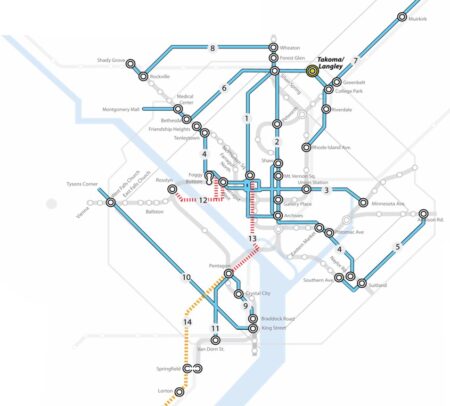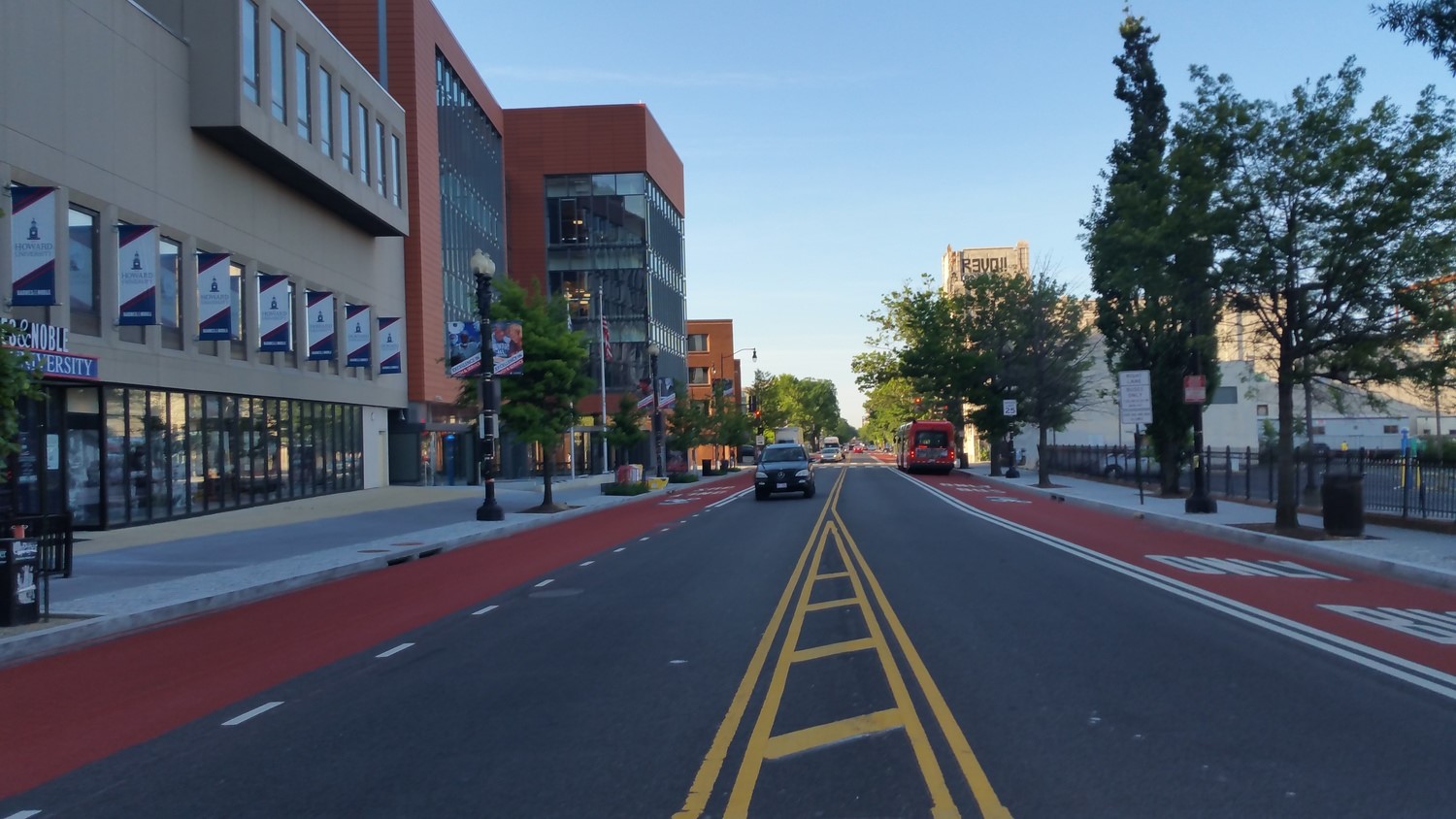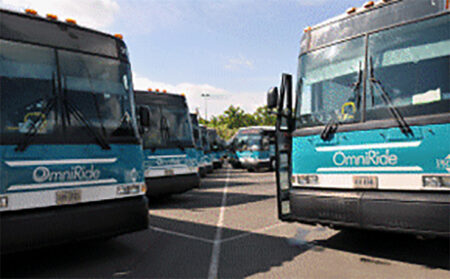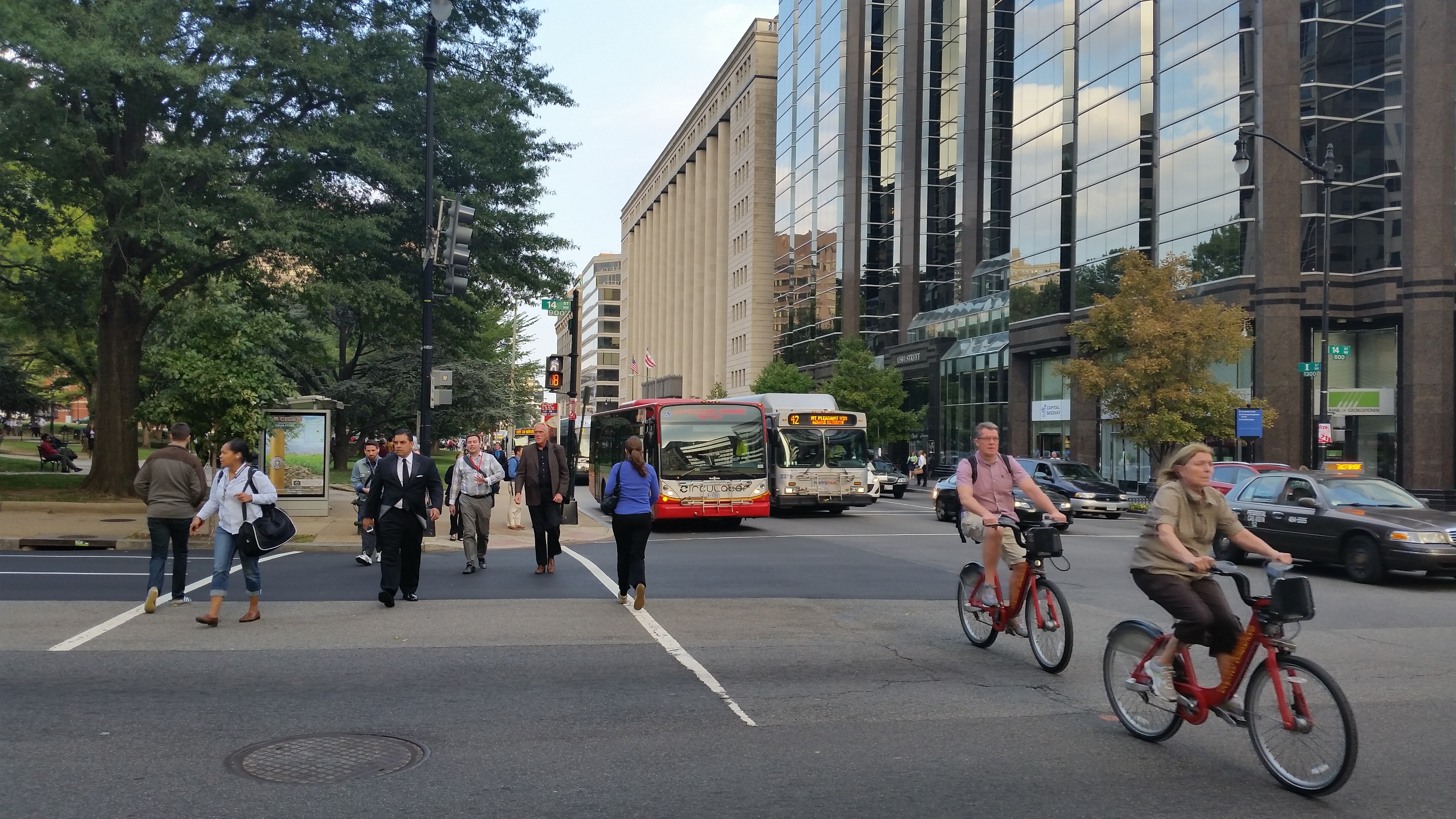The Transportation Investment Generating Economic Recovery (TIGER) grant program was created by Congress to stimulate job growth and economic development through the funding of major transportation infrastructure and Intelligent Technology System (ITS) projects.
Through a highly competitive process, the National Capital Region was awarded $58.8 million in TIGER funding to implement elements of a regional priority bus network, supported by the grant management and stakeholder coordination services provided by Foursquare ITP.

This six-year effort was led by the National Capital Regional Transportation Planning Board (TPB) at the Metropolitan Washington Council of Governments Transportation Planning Board (MWCOG), beginning in 2010 and concluding in 2016 with all of the funds expended and many new bus priority improvements implemented by five transit and roadway agencies from across the region: the Washington Metropolitan Area Transit Authority (WMATA), District of Columbia Department of Transportation (DDOT), City of Alexandria, Maryland Department of Transportation (MDOT), and Potomac and Rappahannock Transit Commission (PRTC). These project owners worked together to implement features of a regional priority bus network, including 15 major projects along 14 corridors in Maryland, Virginia, and the District of Columbia.
Through strategic stakeholder coordination, every project was completed to scope before the end of the grant deadline, including:
- Construction of the Takoma-Langley Transit Center in Maryland, a precursor to a multimodal station for the Maryland Transit Administration‘s Purple Line Light Rail;
- Construction of a dedicated bus lane on Georgia Avenue in the District of Columbia;
- Implementation of regional transit signal priority (TSP) technology, including the optimization of over 600 downtown DC signalized intersections to support TSP;
- Implementation of a deviated fixed route compatible computer aided dispatch / automatic vehicle locator system at PRTC;
- Construction of the first mile of the US-1 Transitway in the City of Alexandria, the initial section of the Crystal City-Potomac Yards Transitway;
- Station area improvements, including significant safety, access, and security improvements at the Pentagon Transit Center and Franconia-Springfield Metrorail Station; and
- Installation of real-time passenger information displays at bus stops across the District of Columbia, Maryland, and Northern Virginia, which included significant work to ensure that power was available at bus stops.


Solving complex technical challenges regarding ITS product interoperability, and especially the development of a regionally compatible TSP solution across various jurisdictional signal systems with various agencies and technologies was at the center of the implementation of the TIGER grant. Throughout the grant lifecycle, MWCOG and Foursquare ITP held monthly meetings with project owners, project partners and representatives of the Federal Transit Administration to discuss the project status and resolve issues as they were encountered. Our staff worked directly with project owners to address issues impacting the critical path of projects, serving as a conduit between project managers throughout the region, and ensuring the projects remained within their approved budgets.
Through the experience of managing the TIGER grant program over the past six years, a major lesson learned is that transportation planners should not feel confined by geographic boundaries when leading complex regional stakeholder engagement. Local bus service provided by WMATA and various other local transit providers constantly cross jurisdictional boundaries; utilizing roadways, traffic equipment, and transportation infrastructure that is owned and operated by many different localities and private partners. To ensure a regional project is successful, project partners must see the goal of their implementation efforts as a seamless integration of transportation services that results in a more efficient and reliable transit network. This has been the ultimate achievement of the TIGER program, and the results of this program will continue to be seen for years to come.
MWCOG’s TIGER grant program will be receiving the Award for Outstanding Implementation Program from the National Capital Area Chapter of the American Planning Association (APA) on November 15th.
Credits:
WCOG (Header image, map)
DDOT (Left photo)
PRTC (Right photo)
